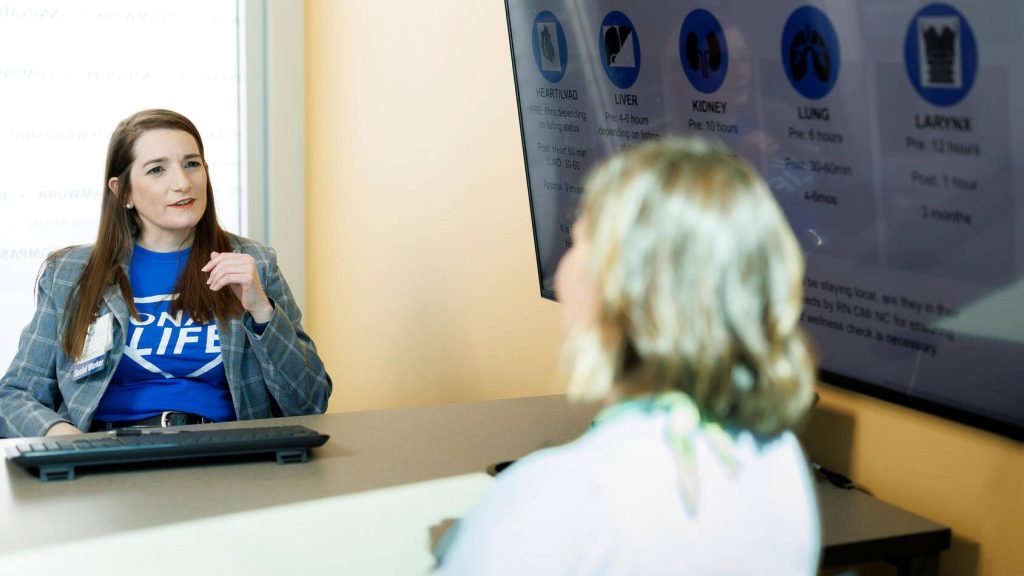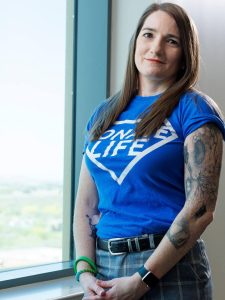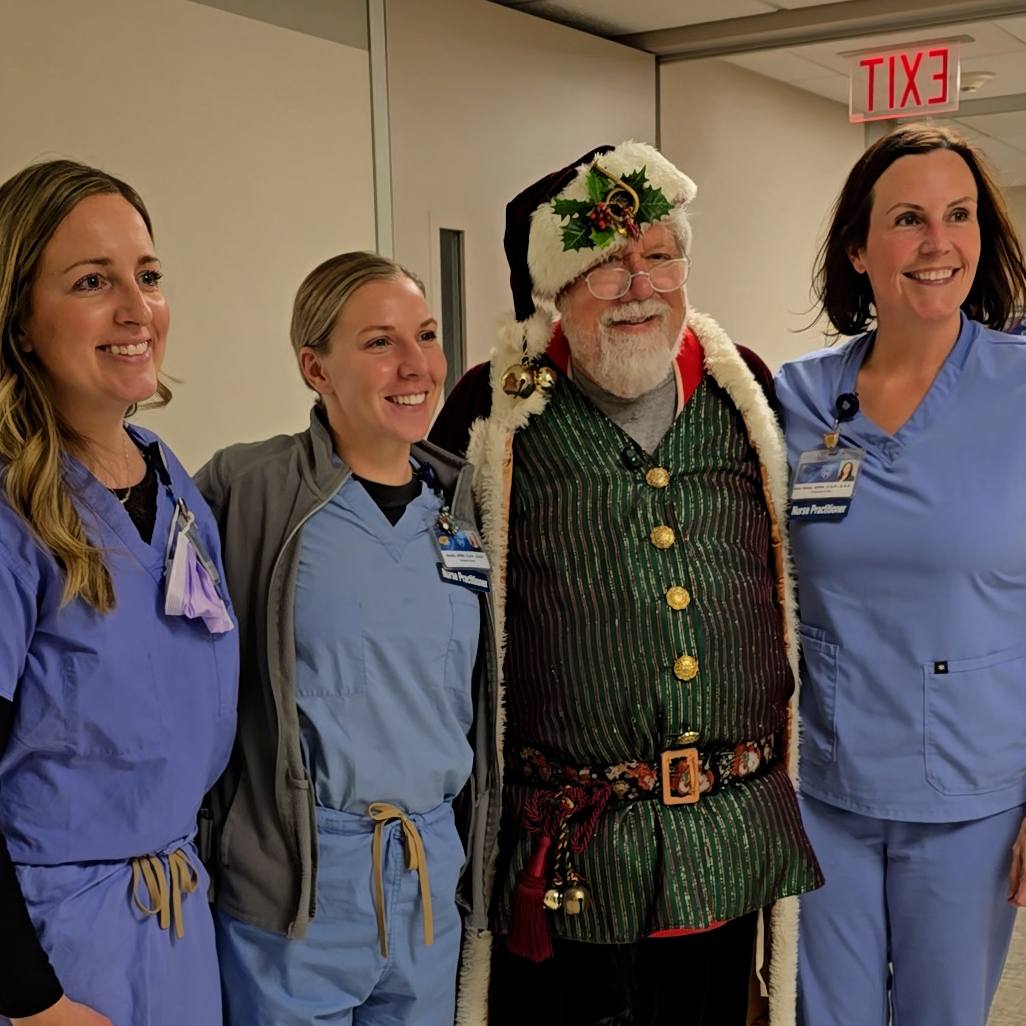
When Tiffany Coco steps into a room at Mayo Clinic Transplant Center in Arizona, she focuses on the patient's needs beyond the medical updates.
"Often, patients put their best face forward with the physicians," says Coco, "And when they talk to us, they let their guard down and open up about how transplant affects their day-to-day life."
As a licensed clinical social worker embedded in multidisciplinary care teams, Coco uses her clinical expertise to assess patients' emotional, psychological and social needs to help them navigate their transplant experience.
Coco leads a team of 20 social work professionals who work alongside nursing and medical staff to deliver an unparalleled experience to patients and organ donors before, during and after their care at Mayo Clinic. Her commitment to this work is deeply personal.
From personal loss to professional calling
At age 15, Coco experienced a tragic loss when her mother passed away unexpectedly. Following this, her family faced a difficult decision: They chose to donate her mother's organs.
"I've been that family on the other side of the conversation," she says. "We woke up that morning not knowing our world would change forever that afternoon, that my mom was going to be gone and we would have to make that decision."
Coco had known from a young age that she wanted to pursue a career helping people; her experience as a donor family solidified her resolve and led her to social work. During graduate school, she began an internship at Mayo Clinic, which led to a full-time role. She joined the Transplant Center in 2013.
"Transplant is a second chance at life ― for the patient, their family and their community," Coco says. "No matter how many transplants I witness, it amazes me each time because I know there is another family that gets a chance that mine didn't."
Helping patients on 'a journey of cautious hope'
Across Mayo Clinic, more than 480 social workers in the Department of Nursing serve patients in all care settings. Social workers are licensed professionals whose work ranges from therapy and counseling to crisis intervention and connecting patients to resources to meet basic needs such as housing, child care and transportation.
In transplant care, social workers help patients and families navigate the emotional, financial and logistical challenges surrounding organ transplantation and left ventricular assist device (LVAD) therapy.
Coco calls the patients' experience "a journey of cautious hope" that begins well before the procedure day and sometimes ends without a transplant.
One of the most sensitive areas her team helps patients navigate is the experience of receiving an organ from a deceased donor.
"To prepare for a transplant, you're preparing for a wave of emotions. It's the excitement. It's the nerves. It's worry. It's everything at once," Coco says. She helps them realize the donor's death would have happened regardless, and the decision to donate is a beautiful gift.
Coco and her team conduct comprehensive psychosocial assessments to identify factors that may affect care outcomes — such as a patient's occupation, housing situation, literacy skills and family dynamics — and bring their insights to the care team.
They serve patients during pre-transplant planning, the patient's hospital stay and post-transplant follow-up, sometimes providing lifelong support.
"We truly do walk along the journey, and we, as the social workers, are there making sure that they have a journey to walk on," says Coco.
"If they don't have a house to go back to after their care, or if they have to choose between meds and meals, that's not quality of life."
Holding patients' stories until they can carry them again
Coco says that from the time she first came to Mayo Clinic, she has been inspired by its culture of accountability and excellence. She admires the way healthcare professionals show deep respect for each patient as a person. This means remembering patients' stories and celebrating transplant anniversaries with them, sometimes 15 years or more after their procedures.
"A patient is not just their diagnosis. It's not just a heart patient ― it's Mr. John Doe, and his motivation for a transplant is to walk his daughter down the aisle. Or Miss Jane Doe, who wants to finish her degree and get married. These stories are the motivation that we hold for patients while they're going through it, and that we give back when they're ready to carry them again."

On her arm, Coco wears tattoos of the organs she's seen in her career. They're a visible reminder of the work she's devoted her life to and of how she is honoring her mother.
"Though I wish I still had my mom, her legacy lives on in not just those lives that were impacted through her organ donation but the patients I come in contact with and impact in a different way," she says.
"I went from being a little 15-year-old girl just trying to figure out her place in the world to being the supervisor who guides the helpers."
Learn more
- Learn about social work at Mayo Clinic in Rochester and medical social worker careers.







